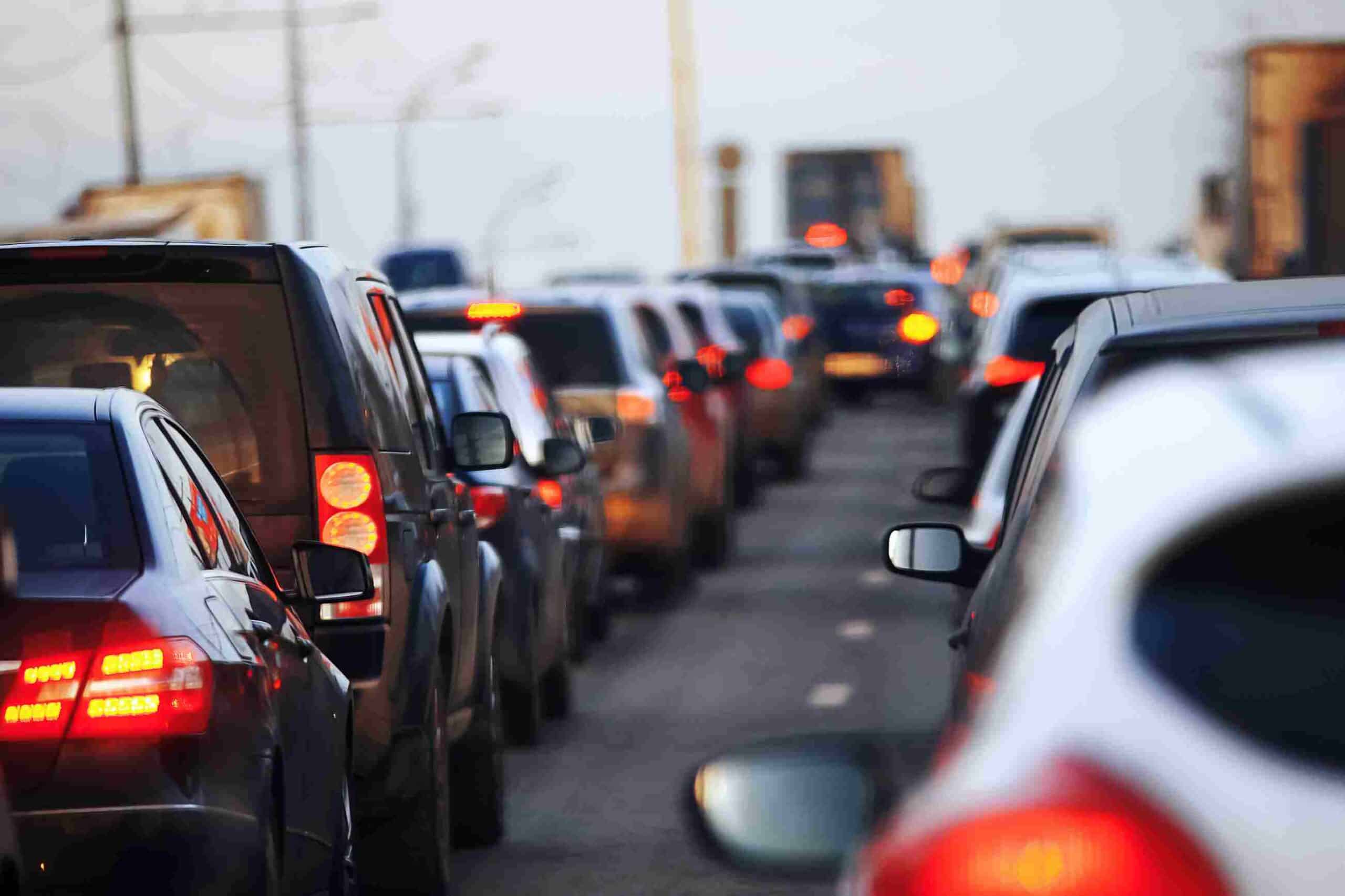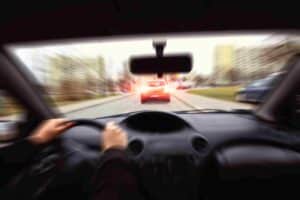
Some drivers may think brake checking is a harmless way to send a message to a tailgater. Others use it as an aggressive form of retaliation. But make no mistake—brake checking is a dangerous act that can cause serious collisions and legal trouble.
At our law firm, we often hear from drivers who have been injured or blamed in situations involving brake checking. As a car accident lawyer in Carmel, we believe it is important to clarify what brake checking is, why it is so dangerous, and whether it is actually illegal under Indiana law.
What Is Brake Checking?
Brake checking occurs when a driver intentionally hits their brakes—often abruptly—to startle, scare, or cause the vehicle behind them to back off. The most common situation involves a lead driver who believes they are being tailgated.
Rather than slowing down gradually or changing lanes, they slam on the brakes in hopes of making the rear driver react. While this might seem like a quick solution to tailgating, it can quickly spiral into a rear-end crash or even a multi-vehicle pileup.
Brake checking is often classified as a form of road rage. It reflects a willful disregard for the safety of other drivers. Whether someone does it to punish the other driver or out of frustration, the intent behind brake checking matters when determining legal liability.
Is Brake Checking Illegal in Indiana?
Indiana law does not use the exact term “brake checking,” but that does not mean it is legal. Brake checking can be considered reckless driving, aggressive driving, or even criminal recklessness depending on the situation and the results.
Under Indiana Code § 9-21-8-55, a person commits aggressive driving when they operate a vehicle with the intent to harass, intimidate, injure, or obstruct another person. This includes:
- Following too closely
- Operating a vehicle in a way that endangers others
- Making sudden lane changes without signaling
- Failing to yield the right-of-way
- Slamming on brakes without a valid reason
If a driver brake checks and causes an accident, they may face legal consequences that include fines, points on their license, or criminal charges—especially if the incident results in injury.
In more extreme cases, brake checking could fall under Indiana Code § 35-42-2-2, which defines criminal recklessness. If the driver recklessly performs an act that creates a substantial risk of bodily injury to another person, and especially if they use a vehicle as the method, they could face a Class B misdemeanor or even felony charges if someone is seriously hurt.
Civil Liability: Who Is at Fault in a Brake Checking Accident?
This is where many drivers get confused. In a typical rear-end accident, the rear driver is assumed to be at fault. The reasoning is that every driver is expected to maintain a safe following distance. However, brake checking changes the equation.
If the lead driver slammed on the brakes deliberately and the rear driver could not stop in time, there may be shared fault or even a shift in liability. Indiana follows a modified comparative fault rule, meaning that if a driver is more than 50% responsible for the accident, they cannot recover damages. If they are less than 50% at fault, their damages are reduced by their percentage of fault.
In a brake checking case, fault is often determined by the available evidence:
- Dashcam footage showing the lead driver’s behavior
- Eyewitness accounts
- Police reports noting erratic or aggressive driving
- Vehicle data recording speed and braking patterns
Our Carmel auto accident attorneys thoroughly investigate these details to ensure that responsibility is assigned fairly. We have seen cases where the brake-checking driver is held primarily or entirely liable, particularly when evidence proves the act was intentional.
Statistics: The Dangers of Aggressive Driving
According to the National Highway Traffic Safety Administration (NHTSA), aggressive driving—including behaviors like brake checking—contributed to 56% of fatal crashes over a five-year period. In Indiana, aggressive driving is a leading cause of rear-end and chain-reaction collisions.
The Indiana Criminal Justice Institute’s Traffic Safety Division reported over 5,000 aggressive driving-related crashes in 2022 alone. Many of these involved tailgating and sudden braking maneuvers. These numbers highlight the urgent need to take brake checking seriously—not just as a traffic violation, but as a public safety threat.
Why Do Drivers Brake Check?
While every driver is different, we have seen a few common motivations behind brake checking:
- Frustration with Tailgaters – Some drivers panic or retaliate when another vehicle is following too closely.
- Road Rage – Intentional aggression meant to punish, scare, or intimidate.
- Insurance Fraud – A rare but real possibility where someone tries to cause an accident on purpose to collect insurance money.
- Lack of Awareness – Some drivers do not realize how dangerous sudden braking can be.
Regardless of the reason, the consequences are often serious. As an accident lawyer in Carmel, we have represented clients who suffered concussions, broken bones, and other traumatic injuries in crashes caused by brake checking. In addition to medical bills, victims often face long recovery periods, lost wages, and emotional trauma.
How to Prove Brake Checking Occurred

Some of the most helpful tools in these cases include:
- Dashcams – Increasingly common and often definitive.
- Black box data – Modern vehicles track acceleration, braking, and speed.
- Phone records – May show that a driver was distracted or texting before slamming on brakes.
- Social media posts – In rare cases, drivers brag about brake checking or road rage incidents online.
With enough supporting evidence, we can build a strong case to hold the responsible party accountable.
What Should You Do After a Brake Checking Accident?
If you are involved in an accident caused by suspected brake checking, here are the steps we recommend:
- Do Not Confront the Other Driver – Road rage can escalate quickly. Remain calm.
- Call the Police – A police report creates a critical legal record.
- Take Photos and Video – Capture the damage, skid marks, road layout, and other important details.
- Get Medical Attention – Injuries are not always obvious right away.
- Preserve Dashcam Footage – If you have one, make sure the file is saved and backed up.
- Contact a Carmel Auto Accident Attorney – Brake checking cases often require legal insight and prompt action.
Our team is available to provide guidance, preserve evidence, and help you navigate the insurance claims process.
Can Brake Checking Be Charged as a Crime?
Yes. If the driver’s actions are deemed reckless or intentional and cause harm, they may face criminal charges. These charges can range from traffic violations to misdemeanors or felonies under Indiana’s criminal code. Prosecutors will evaluate:
- The driver’s intent
- The degree of harm caused
- Whether the action was part of a pattern of aggressive driving
In some instances, a brake-checking driver may also be sued for punitive damages in civil court if their conduct was especially egregious.
How We Help Victims of Brake Checking Accidents
As a car wreck law firm in Carmel, IN, we represent clients who have been injured due to negligent or aggressive driving. We understand how complicated these cases can become, especially when the other driver denies wrongdoing or blames you.
When you work with our firm, we will:
- Conduct a thorough investigation of the crash
- Gather and preserve critical evidence
- Work with expert witnesses if needed
- Handle all communication with insurance adjusters
- Pursue maximum compensation for your injuries, lost income, and pain and suffering
We are not just here to resolve claims—we are here to make sure your rights are protected and that you are treated fairly throughout the legal process.
Frequently Asked Questions About Brake Checking in Indiana
Can I sue someone for brake checking even if I was not injured?
Yes. Even if you were not physically injured, you may still have a valid claim for vehicle damage, emotional distress, or lost wages. Property damage claims can be pursued separately from injury claims. If you can prove the other driver intentionally caused the incident, a lawsuit may be appropriate.
Does insurance cover accidents caused by brake checking?
It depends on the policy and the circumstances. In many cases, the at-fault driver’s liability insurance will cover damages. However, if fault is disputed, insurance companies may delay or deny coverage. This is why it is essential to gather strong evidence and involve a Carmel auto accident attorney early.
What if both drivers are partially at fault?
Indiana uses a modified comparative fault system. If you are found to be 50% or less at fault, you can still recover damages, but your compensation will be reduced by your percentage of fault. If you are more than 50% at fault, you may not recover anything. Brake checking cases often involve shared blame, so legal representation is critical.
Is brake checking different from defensive braking?
Yes. Defensive braking occurs when a driver applies brakes in response to an actual hazard—like slowing traffic or a sudden obstacle. Brake checking, by contrast, is a deliberate, often aggressive act without a legitimate safety reason. The intent and context behind the braking make all the difference.
How long do I have to file a claim in Indiana after a brake checking accident?
In Indiana, the statute of limitations for personal injury and property damage claims is generally two years from the date of the accident. Filing a claim after that deadline may result in losing your right to compensation.
Brake Checking Is Never Worth It
The roads in Indiana can be stressful, but brake checking is never a smart or legal solution. It escalates conflict, endangers lives, and often leads to serious legal consequences. If you were the victim of a brake-checking incident, we want to help. If you are being blamed unfairly after a rear-end crash, we can investigate the full story.
At our firm, we believe every injured driver deserves a fair chance at justice. As a car accident lawyer in Carmel, we are committed to protecting your rights and fighting for the compensation you deserve.
Contact Our Carmel Auto Accident Attorneys Today
If you or a loved one has been involved in a crash where brake checking played a role, do not wait. Call our office to schedule a free consultation with an experienced accident lawyer in Carmel. We will review your case, explain your legal options, and help you move forward with confidence.

